Projects
Research
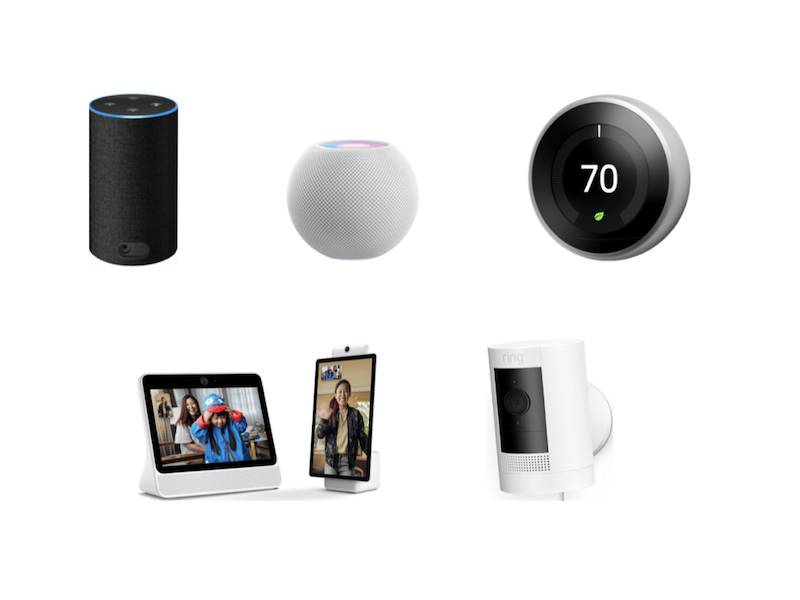
Research on Family and Home Technology Use
In this study, we are exploring the role of always-on home-based Internet of Things (IoT) devices, such as smart
cameras, digital assistants, and other smart home devices in the life of older adults. We are focusing on how
these devices are used by older adults and their friends and family to stay connected and to care for each
other. In particular, we are examining the family dynamics of giving and receiving support, how older adults
and friends and family members perceive passive and active data collection and sharing, and how the introduction
of these devices in the home can affect perceptions of autonomy and control.
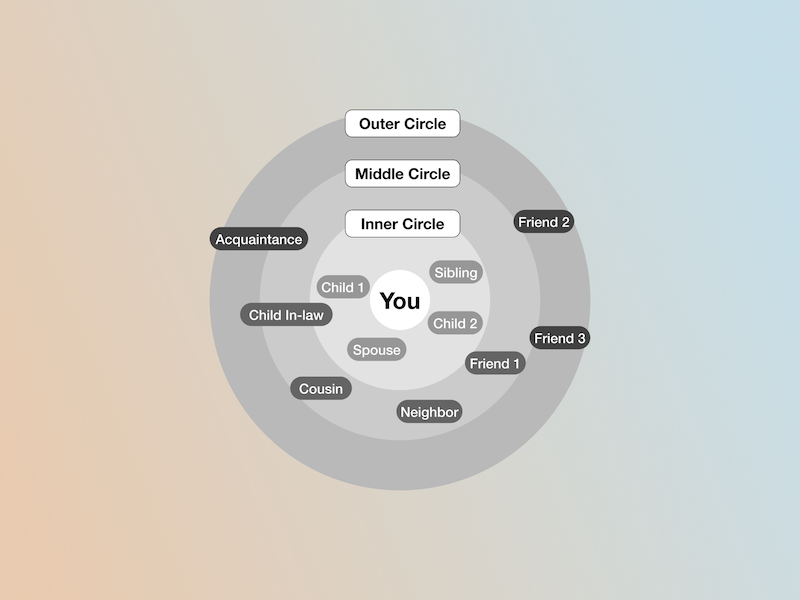
Understanding the Role of Technology in Older Adults’ Changing Social Support Networks
In this qualitative interview study, we are exploring how older adults' social network compositions and their
technology use shifted during a challenging life event, the COVID-19 pandemic. Specifically, we are aiming to
understand how older adults give and receive support as a member of their social support network and how
communications technology plays a role in this process.
Our paper from this work has been submitted and accepted at the 27th ACM Conference
on Computer-Supported Cooperative Work and Social Computing (CSCW 2024).

Disaster Impacts and Adaptations in the 2021 Texas Power Crisis
This project is a qualitative research study on social media data on how people were impacted by and adapted to
the 2021 Texas Power Crisis. Through the short-form internet videos, such as TikToks and Instagram Stories, we
explore how people shared their experiences on social media. We analyzed various aspects of the videos,
including how people adapted to address their need for essentials and power. We also explored how people coped
with the crisis through entertainment and humor. Our goal in this research is to better understand how the
social media videos, including the main subjects of a video and what appears in the background, can be utilized
to understand how people adapt to disaster events.
Design, Usability, & Development
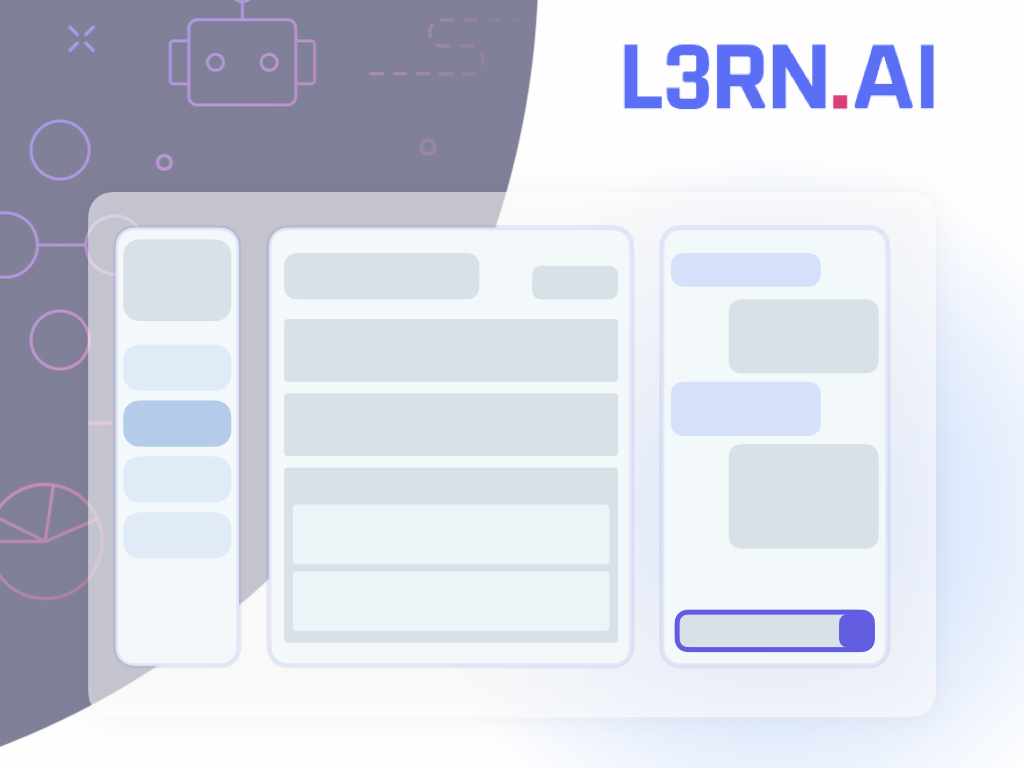
Design and User Research Internship at l3rn.ai
During summer 2024, I joined l3rn.ai as a User Research Intern, where I led the design of a clean and
intuitive front-end user interface for dl3rn.ai, an A.I. platform that empowers business analysts and leaders to
visualize and understand their company’s structured data while providing actionable business insights.
My design incorporated a business insight interface and a narrative-style A.I. chat interface, enabling
users to explore and interrogate their data independently without relying on dedicated data analysis teams.
Following the beta launch, I conducted user research through interview sessions, which included a series of prompted tasks designed to assess how well the design fit the needs of business users. This included the evaluation of the usefulness and quality of the A.I. generated insights and feed back, as well as our platform’s ease of use.
Following the beta launch, I conducted user research through interview sessions, which included a series of prompted tasks designed to assess how well the design fit the needs of business users. This included the evaluation of the usefulness and quality of the A.I. generated insights and feed back, as well as our platform’s ease of use.
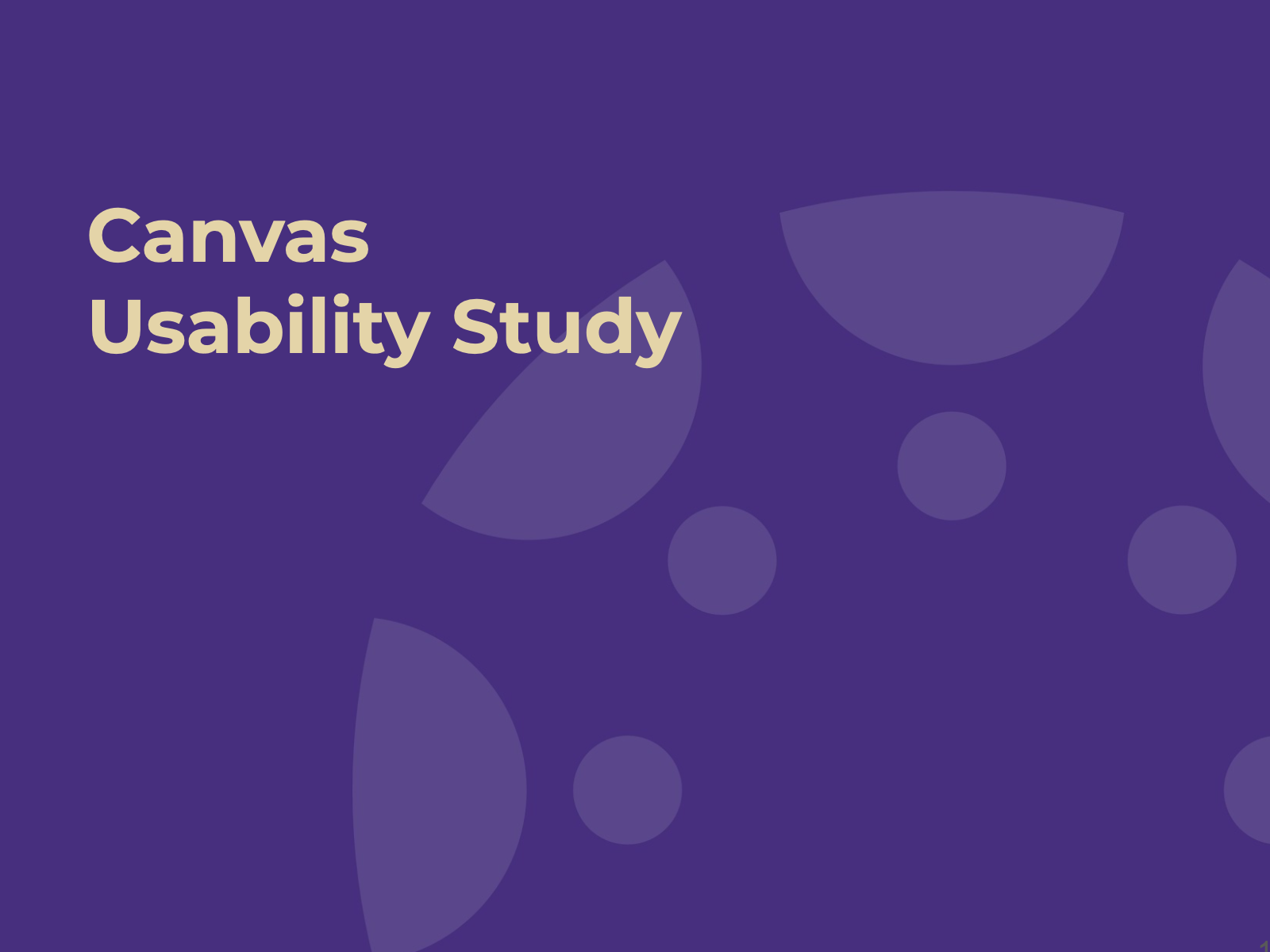
Canvas Usability Study
Canvas is a Learning Management System used at most universities in the US, including the University of
Washington. Inspired by anecdotal evidence that Canvas for instructors’ platform might pose some challenges to
users, we conducted a usability study to understand more about the user experience with the platform. Each
session includes a series of prompted tasks mimicking what first-time instructors go through when creating a new
class site.
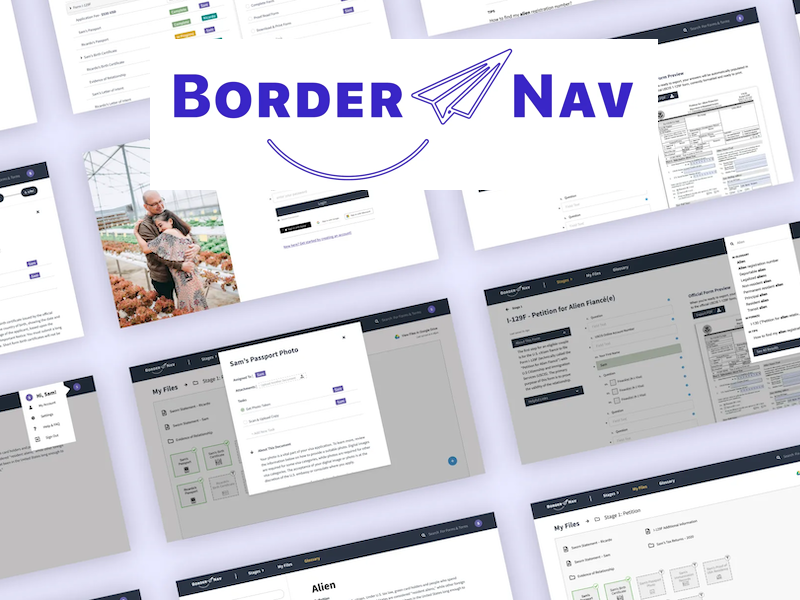
BorderNav
BorderNav is a prototype web app that helps couples confidently navigate their application for a K1 U.S. Visa,
which permits foreign partners to immigrate, then marry and live with their partners in the United States. The
application process is lengthy, complicated, and expensive. Existing tools like visa processing services or
immigration lawyers add significant additional cost. Our process includes interviews & affinity diagramming,
creating personas, ideation and sketching, defining the user flow, creating the information architecture, and
creating an interactive prototype.

Oasis
Oasis is part of the UCSD Earth2 Project, built as a knowledge sharing
platform based on researchers sharing pieces of their work in the form of micro-publications. Users are able to
ask questions and get evidence-based answers from researchers who are the experts in their fields.
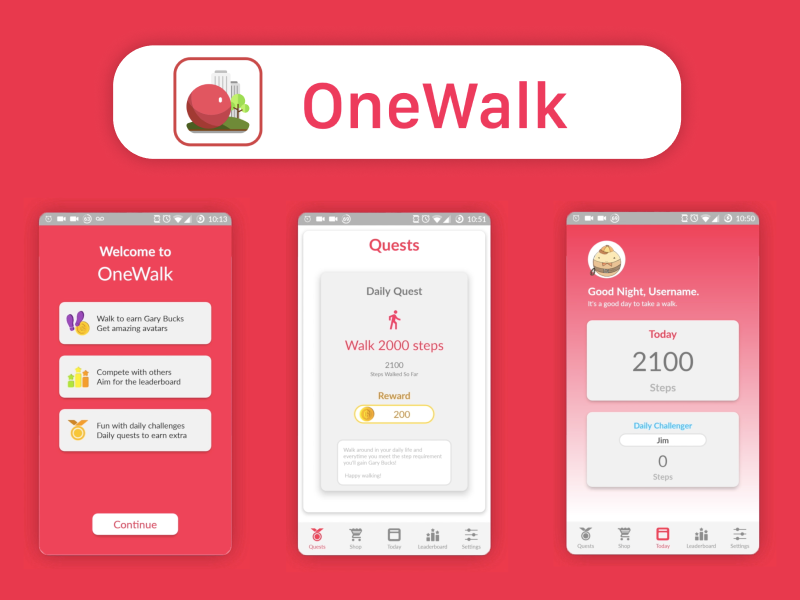
OneWalk
OneWalk is an Android fitness app employing gamification to motivate users to walk more. It offers customizable
avatars using in-game currency earned by walking and completing daily quests, providing immediate rewards. Daily
quests offer concrete goals, varying in difficulty to suit different users, while a global leaderboard adds a
competitive edge for highly active users. OneWalk is designed to make exercise enjoyable by offering incentives
and recognition, transforming daily activity into a fun and engaging experience.
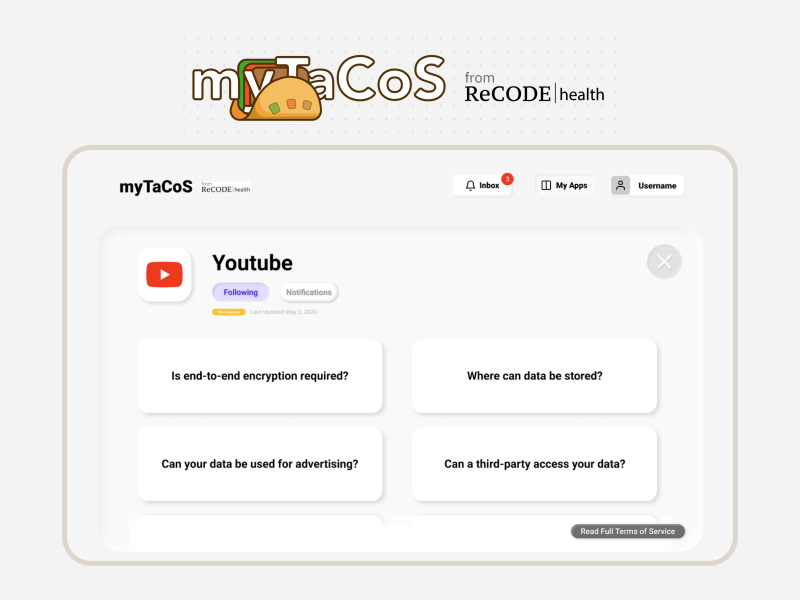
myTaCos
myTaCoS (my Terms and Conditions of Service) is a web app addressing the complexity of Terms of Service (ToS)
agreements. With 70% of ToS documents burdened by lengthy sentences, myTaCoS aims to simplify and enhance
consumer readability. Leveraging the "Digital Health Decision-Making Framework and Checklist Designed for
Researchers," it synthesizes key sections of ToS documents through AI text analysis. Users can discover apps,
track changes in ToS, and manage notifications. The platform offers detailed insights into terms and conditions,
allowing users to suggest changes and crowdsource relevance. Empowering users with clarity and control, myTaCoS
aims to enhance the understanding and management of digital service agreements.
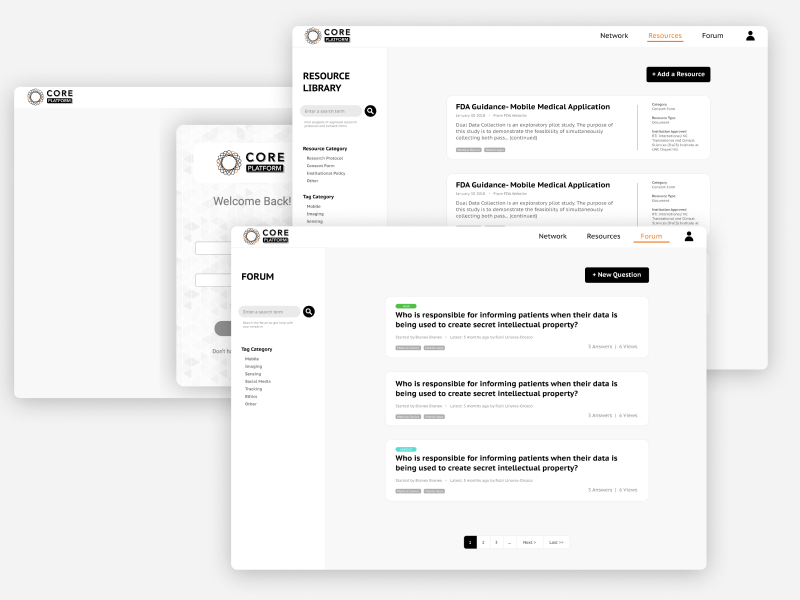
Redesign of the CORE Platform
The CORE platform facilitates global digital health research ethics by fostering collaboration among
researchers, developers, participants, and institutions. With over 700 members worldwide, it connects users,
hosts discussions, and offers a resource library. Our aim is to enrich the CORE Resource Library and promote
community interaction through the Q&A Forum. In our platform redesign, we streamlined the interface to
prioritize its three core features, improving readability and user experience. By enhancing accessibility and
functionality, the CORE platform can better support stakeholders to advance digital health research seamlessly
and effectively. The current version of the CORE Platform can be found at
core.recode.health.
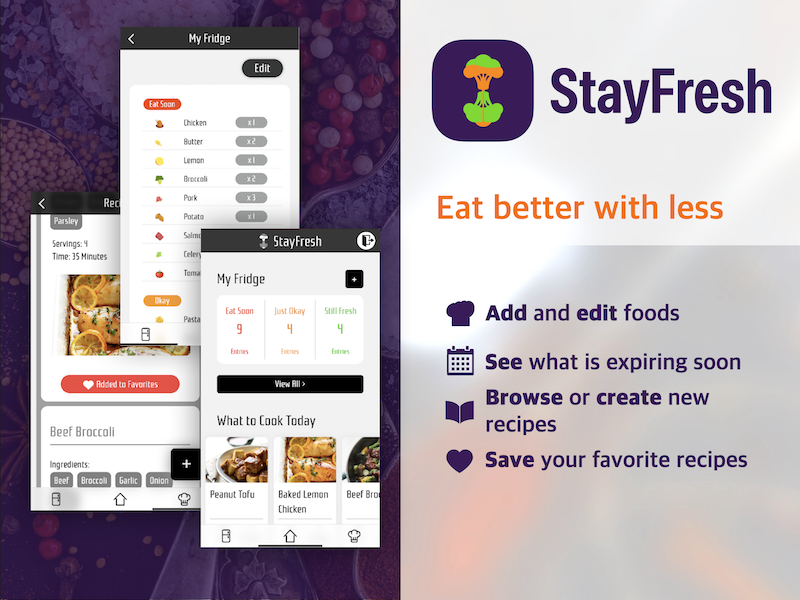
StayFresh
StayFresh is an app aimed at reducing food waste while inspiring users to create flavorful and nutritious meals.
Following interviews and paper prototyping, we developed StayFresh to empower individuals to track their food
inventory and discover inventive recipes, promoting both sustainability and culinary creativity. With StayFresh,
users can cook to their preferences while being mindful of their budget, fostering a healthier lifestyle and a
more sustainable approach to food consumption.
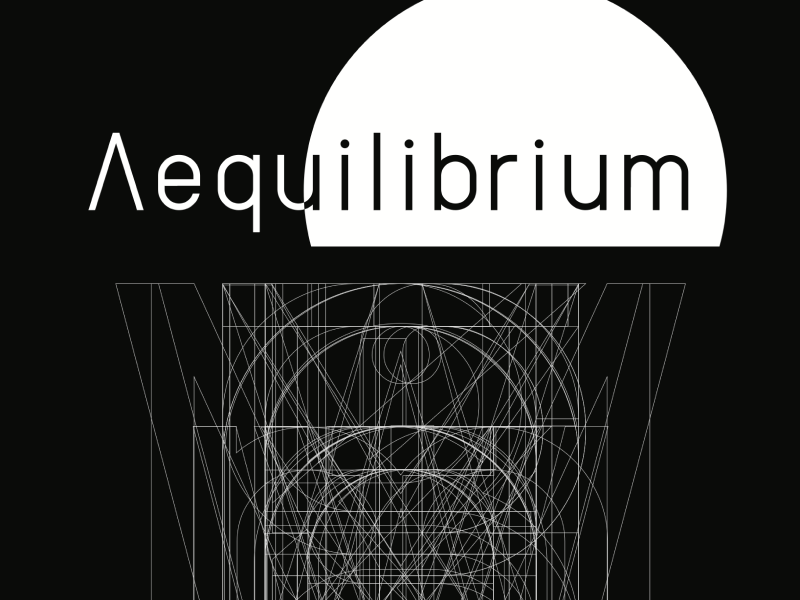
Aequilibrium
Aequilibrium is a contemporary typeface designed to offer readers an exceptional reading experience through its
consistent design, refined kerning, and visually appealing form. It eliminates unnecessary elements, allowing
geometric shapes to bring a sense of harmony to the text it displays. Its minimalist and modern style makes it
adaptable for a future where diverse media will be used to convey ideas. The name Aequilibrium reflects its
purpose of bridging the gap across different media, enabling text to manifest in various formats with equal
grace.
 Free to use under
CC BY-NC-SA 4.0
Free to use under
CC BY-NC-SA 4.0
 Free to use under
CC BY-NC-SA 4.0
Free to use under
CC BY-NC-SA 4.0
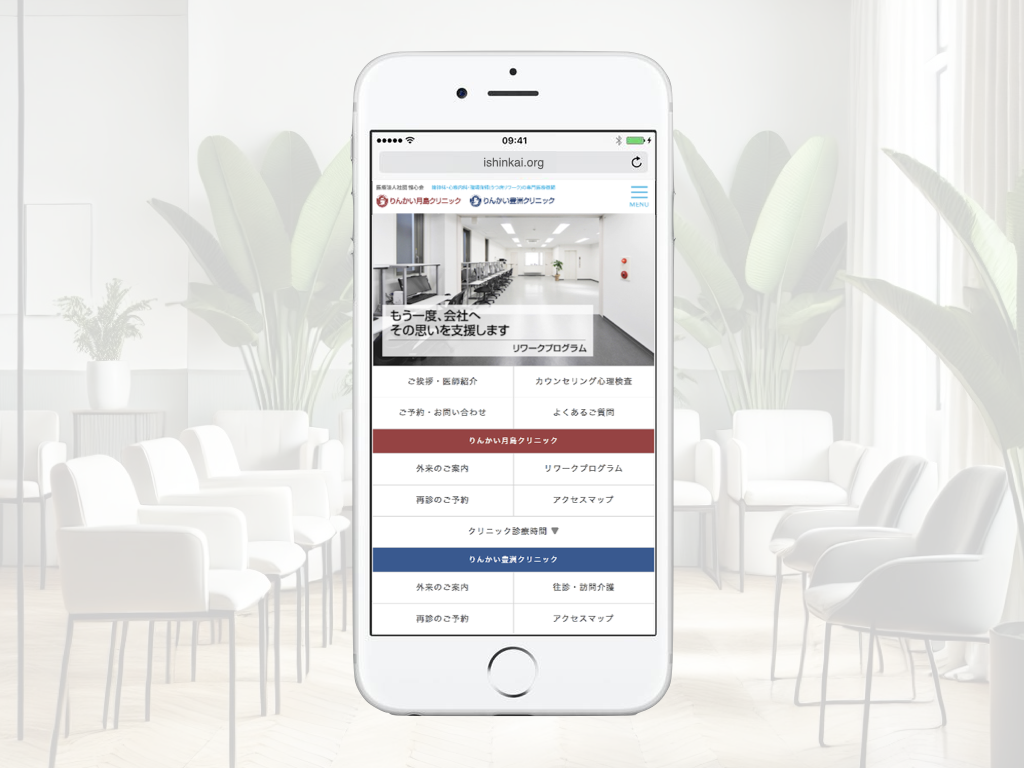
Rinkai Clinic
Rinkai Clinic in Tokyo focuses on psychiatry and psychotherapy, offering
treatments for mental health conditions such as depression, anxiety, and dementia. During my internship
at Jesto Inc. in 2016, I designed the mobile version of their website and patient portal.

